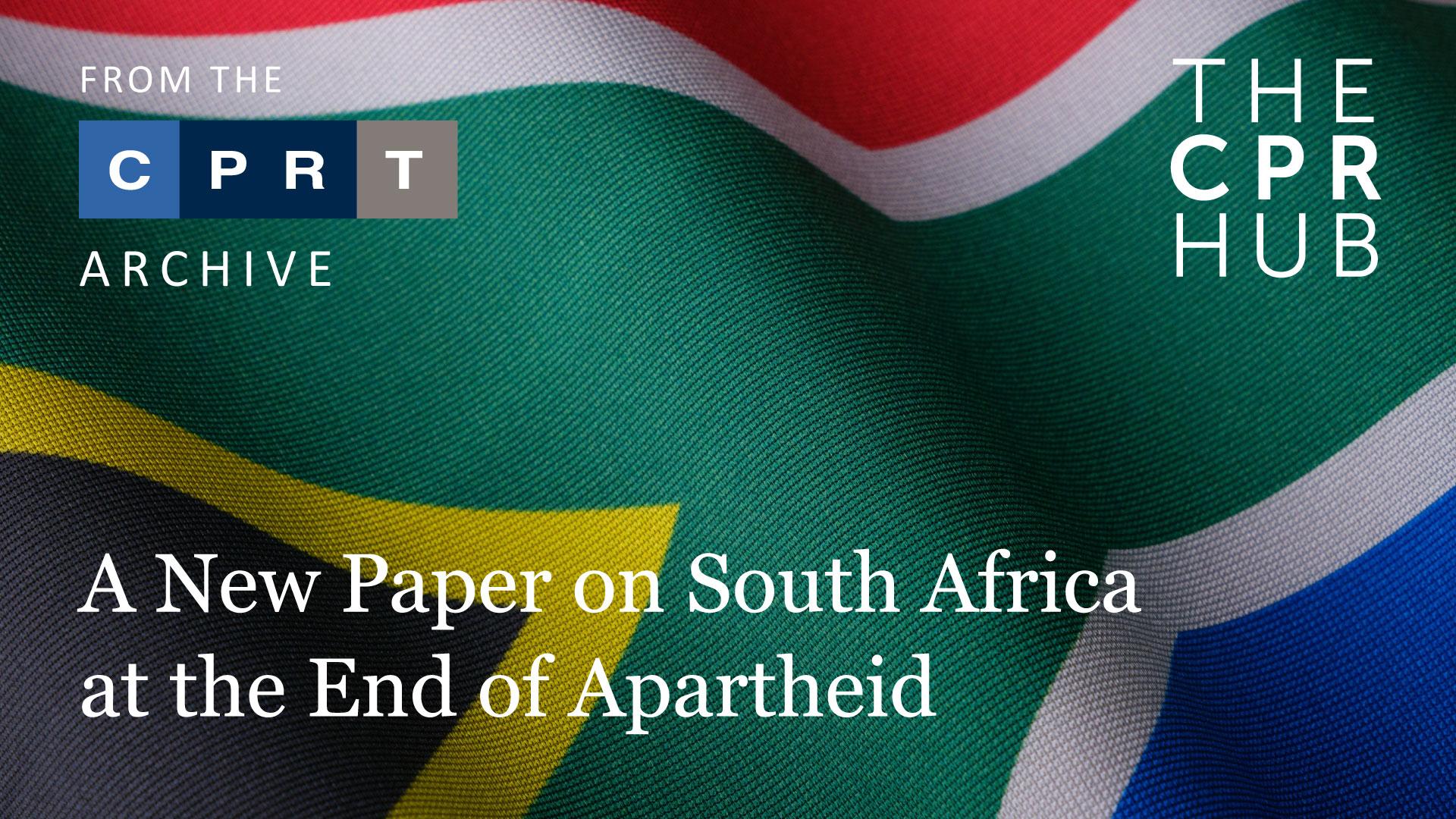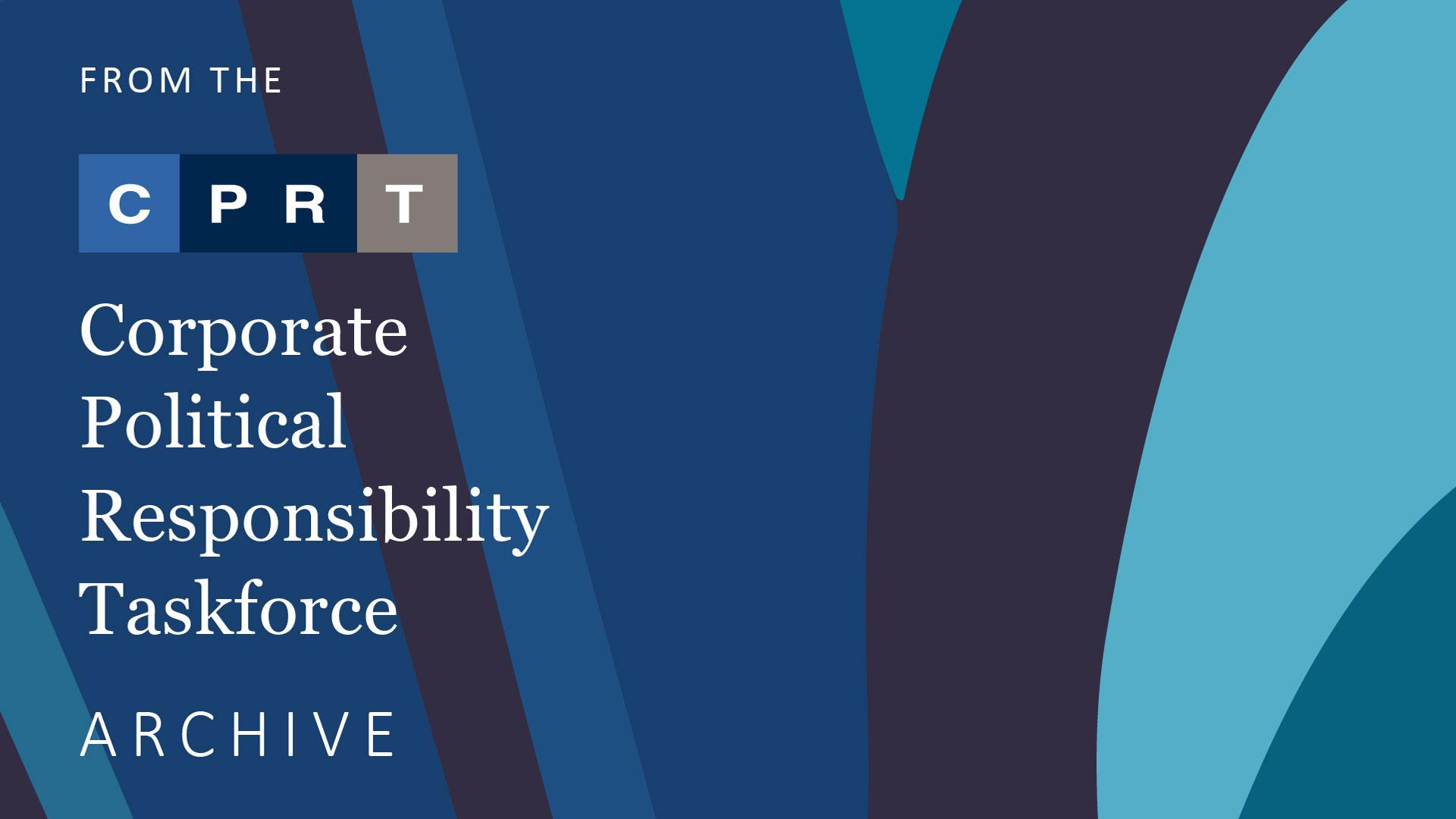Receive Updates from The CPR Hub
Learn about new tools, insights and events to help you consider how CPR can help your company, clients or members.


The article explains that capitalism and open markets can strengthen democracy by fostering pluralism, competition, and opportunities for independent groups to operate outside government control. It argues the bigger risk is when governments capture businesses through regulation, which reduces that independence and weakens democracy.
This article is a summary of a conversation hosted by Democratic Innovations at Yale's ISPS. Led by ISPS Director Alan Gerber and ISPS faculty fellows and political science professors Hélène Landemore and Adam Meirowitz, Democratic Innovations serves as a laboratory to identify and test new ideas for improving the quality of democratic representation and governance. It recaps insihgts from the conversation hosted by Landemore and Theophile Penigaud de Mourgues, a postdoctoral associate with Democratic Innovations, and Jonathan Moskovic, advisor in democratic innovation for the president of the French-speaking Brussels Parliament.
Paul Rosenburg interviews James Fishkin, the Janet M. Peck Chair in International Communication at Stanford University where he is Professor of Communication, Professor of Political Science (by courtesy) and Director of the Deliberative Democracy Lab. Fishkin recounts a wide range of real-world deliberation experiments—including on energy and climate—that achieved policy progress by integrating representative citizen groups, expert input, and structured facilitation. The interview outlines the design conditions for those breakthroughs, which can be a source of best practices for civil society organizations, and potentially, companies.
Eccles draws on a survey of 884 sustainability experts in 72 countries, which finds that NGOs’ go-to tactics—such as boycotts, litigation, and public shaming—are seen as low-impact and risk fueling backlash. It points instead to higher-leverage strategies like policy advocacy, education, and constructive engagement with skeptics as more effective paths forward.
A crisis negotiations veteran explains how building rapport and trust help avert dangerous outcomes, even in very high threat situations. Includes firsthand experience to show how respect and listening can help save lives, and offers detailed suggestions for listening to understand underlying needs and interests.
This guide offers conversation practices and norms that help people move beyond political echo chambers, enabling genuine learning, mutual understanding, and connection across divides.
This book shares the results of Diane Hessan's weekly interviews with 500 voters from every state, of every age and ethnicity, and along different points of the political spectrum. The topics ranged from race to guns, from character to party politics, from masks to rallies, from the Supreme Court to the pandemic to immigration and climate change. She finds that Americans have more common ground than they realize, but that they need new approaches to listening and understanding each other.
A far-reaching account of how intractable conflicts can be transformed, and the mindset that enables breakthroughs. Outlines specific approaches from conflict resolutin and peace-building, including how to leverage a "third side."
This playbook offers HR professionals guidance on managing political discussions at work, providing strategies to ensure civil dialogue, resolve conflicts, and maintain a respectful, productive environment. It includes practical tips and real-world examples for handling political topics in diverse workplaces.
Patricia McLagan is an author, consultant, and business owner with fifty years’ experience supporting large scale change processes in business and governments globally. From 1983 through 2004, Pat consulted with major South African businesses, government entities, universities, and parastatals, and chaired the Desmond Tutu Peace Foundation after returning to the US. This article draws on her personal experience with South African businesses and government entities from 1983 into the 2010s, focusing on what some white South African business leaders did in a time of polarization and potential civil war.
The Grand Bargain Project finds that Americans across party lines identify the same six priorities—economic opportunity, education, healthcare, national debt, clean energy, and tax reform—as critical, with surveys showing over 90% agreement on their importance. Even more encouraging, when comparing the status quo to a shared package of 35 reforms, 77% preferred the reforms. These results point to rare cross-partisan convergence on both the problems and potential solutions, and a possible place for constructive engagement.
Interviews with 48 Americans from across ideological and demographic groups reveal broad commonality in wanting fairness and clear expectations of government—such as equal rule enforcement, responsive leadership, transparent decision-making, and dignified public services. At the same time, people diverge on what constitutes fairness, with some emphasizing opportunity, others consistent process, and others tangible outcomes that prove fairness is real. Provides a starting point for stakeholder engagement, and suggests approaches that speak to concerns across the political spectrum.
An introduction to Third Side Strategies, including the rationale for focusing on CPR Governance to enable long-term value for business and society. Outlines the main motivations -- including Risk Management, Long-term Value Creation, and Supporting Business Purpose and Fiduciary Duty. Includes the main services offered and how to get involved
This article examines how past negotiations, or precedents, shape current negotiations by guiding strategy and providing tested solutions, while also potentially constraining new thinking. It offers practical insights for managers on how to create, apply, and navigate precedents effectively to influence outcomes.
This nonpartisan initiative aims to translate publicly available government data into clear, accessible insights on a variety of topics, including the economy, health, education, and government spending. By presenting information without spin, it aims to empower citizens, policymakers, and businesses to form their own conclusions, supporting the “third side” in polarized debates.
Learn about new tools, insights and events to help you consider how CPR can help your company, clients or members.
